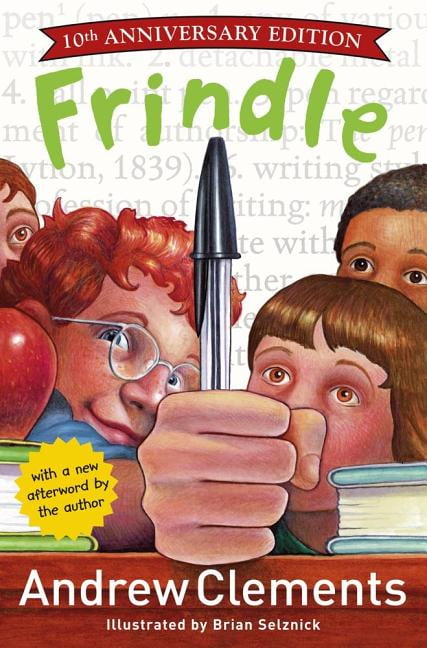



But what's going to happen on the fifth day when the fifth different kid walks in there and asks that lady for a frindle? What’s that lady behind the counter going to do?” Point at the plastic container of pens and say, 'There they are!' Next day, have a different kid go in the store and ask the same lady for a frindle. Well, she's going to look at you like you’re crazy, but say the word again-'I need a frindle, you know, a frindle.’ Say it two or three more times, and then help her out. There’s a little convenience store down the street from the school where you go sometimes and buy candy, right? So walk in there after school today, put 79 cents on the counter, look right at the person behind the counter and say, ‘I need to buy a frindle.’ Let's say it's a lady working there. You can’t just make up a new word and have it go into the dictionary. He frowned and shook his head, and said, “Nah-that’s impossible. There was a boy in the back of the room who didn’t believe me. And then I said, "No, really- if enough other people start to use our new word, then in five or ten years, frindle could be a real word in the dictionary.” frindle." I just made up the word frindle, and they all laughed because it sounded funny.

Pulling a pen from my pocket I said, “For example, if all of us right here today said we would never call this thing a “pen” again, and that from now on we would call it a. They didn’t believe me when I pointed to a fat dictionary and told them that ordinary people like them and like me had made up all the words in that book-and that new words get made up all the time. I was trying to explain to them how words only mean what we decide they mean. I was teaching a little about the way words work, and about what words really are. It was shortly after my book Big Al had been published, and that was one of the first times I had been a visiting author. I was talking to a bunch of first and second grade kids one autumn afternoon in 1990 at the JFK Elementary School in Middletown, Rhode Island.


 0 kommentar(er)
0 kommentar(er)
